It’s been several days since the last post was published on Kate’s life with Bipolar Disorder. Leonie has the same diagnosis and the other day she spent some time telling me of her experiences. Leonie’s story is one of suffering and sadness. And it is also one of strength, perseverance and triumph. She has taken her illness and the darkness it produced, and has found a way to use a variety of strategies and to create the light of her life. As always, if reading Leonie’s story triggers your own illness, please speak with your mental health professional or call Lifeline on 13 1114.
Leonie was first diagnosed with depression in 2003 and was prescribed an antidepressant. This led to a psychotic manic episode, which was followed by a period in hospital a month or two later. Even though she was heavily sedated and experiencing delusions, she clearly remembers the moment she left the doctor’s office after hearing him say the phrase “it seems likely you have bipolar”.
When she shared the diagnosis with a close friend from her early university da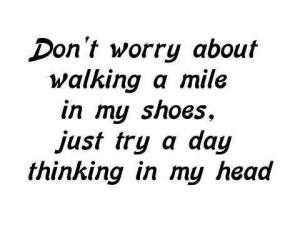 ys, she was told, “hindsight is 20/20”. Other friends and family agreed. Leonie had been living with bipolar since she was a teenager. Fast forward to 2003 and much of her life had masked the illness.
ys, she was told, “hindsight is 20/20”. Other friends and family agreed. Leonie had been living with bipolar since she was a teenager. Fast forward to 2003 and much of her life had masked the illness.
Leonie gave birth to a son in 1998 and a daughter in 2001. In September 2001, when planes hit the World Trade Centre in New York on 9/11, her daughter was two months old. Leonie remembers her prevailing and repetitive thought was, “how could I have brought my baby into such a brutal world?” Her general practitioner realises now that she was living with post natal depression at the time. In fact, she lived with it following the birth of both children.
With friends living in the state next to the World Trade Centre, and a 2 month old baby, 9/11 hit Leonie hard. Her existing depression led to her spiraling further into the illness.
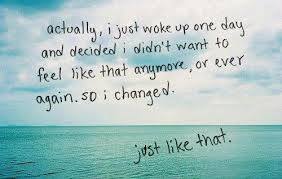
Not quite that simple, Leonie’s transformation has taken many years
She returned to work part-time at the beginning of 2002 and found it very stressful. She ended up on indefinite long service leave. She felt unsupported, confused and lost.
Then, in January 2003, when her daughter was 18 months old, she looked up to the air conditioning duct in her house to see flames. She got herself and the children out and by the time the fire brigade arrived smoke was billowing from every orifice of the house. While most of the damage was confined to the roof cavity, the rug where the children were sitting when the flames were first seen was burnt by a molten air conditioning vent that had fallen. Leonie became fearful of staying in the house, and also fearful of leaving it at the same time. How much turmoil and confusion she must have been feeling at that time!
While Leonie was taking a shower one day in June 2003 she distinctly remembers not being able to work out why she was in there or knowing what to do next. She couldn’t work out how to turn off the water or grab a towel. She managed to call a friend, who gave her instructions to “hang up, don’t move and pick up the phone when it rings”, after promising to help. Together they dressed and breakfasted the children and took them to day care. They made a doctor’s appointment to see her General Practitioner and went with her friend’s support a couple of days later. Leonie was diagnosed with depression and prescribed Zoloft, an antidepressant. Within a month Leonie experienced psychosis, which is apparently a common result when that type of antidepressant is prescribed to someone with bipolar.
The 5 years between 2003 and 2008 were very bleak for Leonie. She spent most of the time severely depressed, with a few severe manic episodes. Christmas 2008 was very bleak. A few months earlier Leonie experienced a manic episode involving some friends, which affected their friendship in a negative way. Whilst attending the Christmas assembly at her children’s school she experienced a full-blown panic attack. She felt like the worst mother in the world and completely demoralised.
Leonie began thinking about suicide as an option so her family would no longer have to feel the shame she felt she brought on them. She felt they would be better off without her. Even though her husband and mother knew she was low, she hid the extent of it from them.
By this time her file at her mental health centre was an inch thick. Between 2003 and January 2009 she felt like the mental health professionals came through a revolving door.
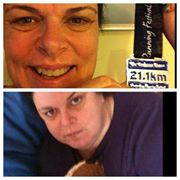
Bottom: 2008, Top: 2013
The day that produced the turning point came when she saw one specific psychiatrist in that very long line of professionals. She walked in the door at her lowest ever point and was asked to tell her story yet again. The thought of rehashing all the pain and suffering was unbearable. Two minutes in, the psych was on the phone asking for a bed in the closest inpatient unit.
Leonie was in hospital for a month so that her new doctor could observe her closely as he fine tuned her medication. She felt lucky that she had finally found the right fit with a mental health professional. He was intuitive and understood her well.

She was out of hospital another month before another manic episode hit as a result of coming out of such a low. Bordering on psychotic again, she ended up in the emergency room with police hovering for most of the day while waiting on a bed in the inpatient unit. For another month, her doctor once again monitored her closely as he readjusted her medications. Leonie remains on these same medications to this day.
Career wise, traveling back in time briefly, in about 2005/6, Leonie was working 2 days a week as a teacher. She struggled because she was so depressed. Despite her then psychologist strongly suggesting that she submit a medical retirement, she resisted. The thought broke her heart. In a job that she had previously loved, she felt that she was unfit to do that work forever. But she couldn’t bring herself to submit the paperwork.

Leonie’s doctor discharged her from hospital at the end of May 2008. She experienced one minor depressive episode which lasted approximately a week. At that point she participated in her second, 10-week mindfulness course. By October of that same year she was once again doing 2-3 days of casual teaching each week. She chose her schools carefully as she made these tentative steps, but felt like she had her life back.
The entire year of 2009 saw her regularly working 3-5 days per week (at various schools). In the final term one school invited her to work 3 days a week for the rest of the year. In consultation with her team of professionals and close family, by October she decided to go back to full-time work.
At the beginning of 2010 she began her new job, a position she retains today. At first she didn’t tell anyone at her work about her illness due to feelings of shame and fear of judgement. But after she felt she had proven her wellness, she received incredible support from her boss.
Other than one minor and short-live depressive episode in 2012, which included anxiety attacks, she has been free of mood swings. While she doesn’t consider herself “cured”, and she will be on medications for the rest of her life, her condition is now successfully being managed. She utilises a team of professionals.
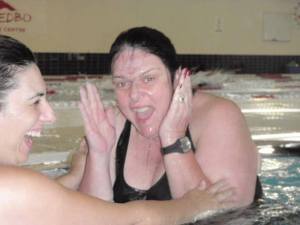
The joy after conquering a long-held fear of going down a huge water slide
Psychiatrist, Psychologist, General Practitioner. She combines medications with regular mindfulness training and sessions with her psychologist. She has made significant changes to her lifestyle by exercising and eating healthily. She now gets adequate sleep after discovering that the lack of it contributed to her manic episodes.
Leonie also calls on the support of close family, colleagues and friends. She feels blessed to be a part of a wonderful circle of social support. She now knows, thanks to this amazing support, that she no longer needs to keep the secret and shame.
Leonie feels that the key to beginning her path to wellness was to find that one professional that she could really connect with.
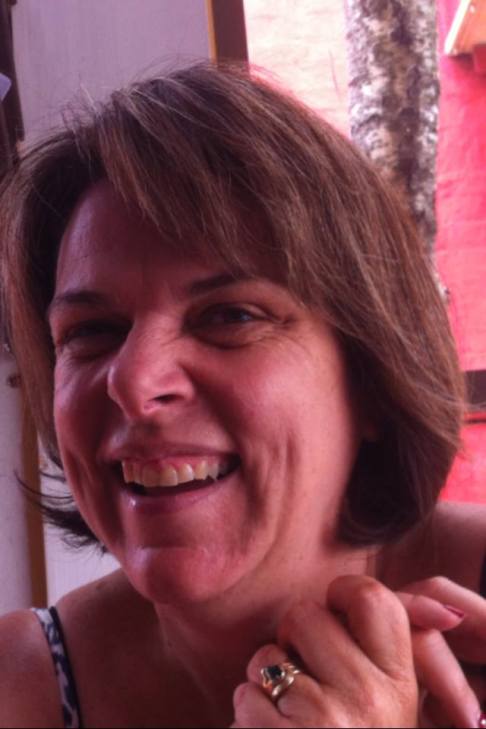
Christmas 2013 and Leonie’s new way of being







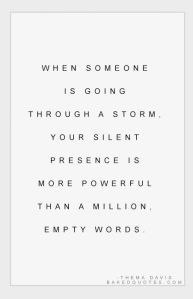



















Written
on November 8, 2013